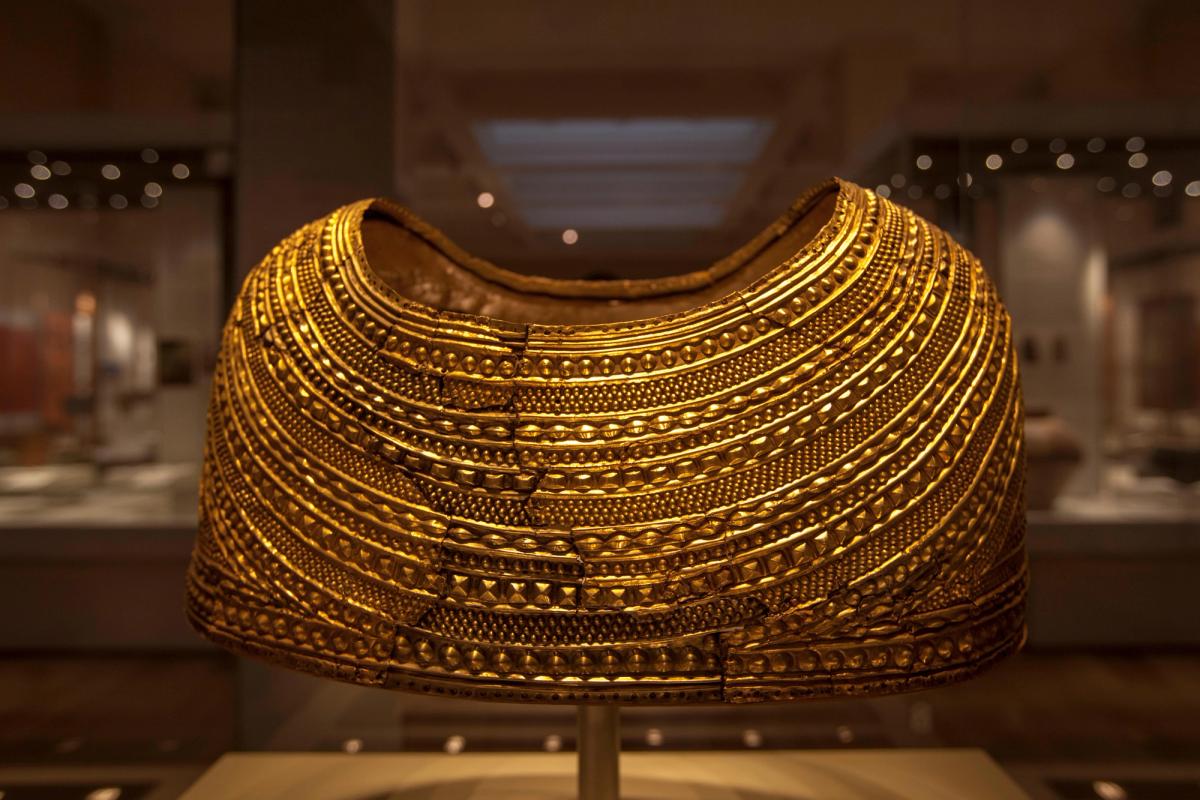First there was Greece, then Nigeria and China—now Wales is demanding that artefacts housed at the British Museum be returned home in the wake of the recent thefts controversy at the beleaguered London institution.
Politicians are calling for Welsh items housed at the museum, such as the 4,000-year-old Mold Gold Cape, to be repatriated across the border. “The cape [found in Mold, Flintshire, in 1833] is one of the finest examples of prehistoric sheet-gold working and is quite unique in form and design,” says the British Museum website.
Liz Saville Roberts, the Westminster leader of the Plaid Cymru party who represents the Dwyfor Meirionnydd constituency, told the Daily Mail: “The Moel Hebog Shield [another Welsh artefact] is not even on display despite the treasure being over 3,000 years old. The argument used by the British Museum is that it is the most secure location for them.” The shield is a “splendid example, representative of the rise of large sheet-bronze work in later Bronze Age Europe”, adds the museum website.
Saville Roberts says: “For Wales, for Greece and for many countries that were under the control of the British Empire, that argument has been severely undermined by this saga. It is high time we faced that the British Museum does not hold the right to these treasures and a grown-up discussion is required about their repatriation.” She proposes that the items be transferred to Amgueddfa Cymru-National Museum Wales in Cardiff.
Meanwhile, Heledd Fychan, also a Plaid Cymru member and a member of the Welsh Senedd (parliament), told The Art Newspaper: “I would like to see the British Museum proactively engage with national museums across the world about repatriation of key collections and perhaps display the replicas there instead. That means key collections could still be showcased in London, but that the objects themselves could be in their rightful nations, should that be the will of the people and those national museums.”
A British Museum spokesperson told Sky News: "The Mold Gold cape has been on loan to both Wrexham Museum and National Museum Wales in Cardiff in the past ten years, and it has been loaned internationally, as recently as 2021 to Halle in Germany. Six million people visit the museum each year to experience this world-class collection, and the Mold Gold cape is on display to them all, for free, where it is a star piece in our Europe and Middle East Gallery.”
Peter Higgs, a senior curator of Greek and Roman art who was employed at the British Museum for 30 years, was identified in UK press reports, as responsible for stealing priceless artefacts from the museum’s collection. Higgs's family has denied the allegations against him. The British Museum’s director, Hartwig Fischer, stepped down on 25 August.
Earlier this week a state-run Chinese newspaper demanded that the British Museum “returns all Chinese cultural relics acquired through improper channels to China free of charge” following the theft scandal. The 1963 British Museum Act currently prohibits a full return of the museum’s artefacts though it is unclear how this applies to Welsh objects.


